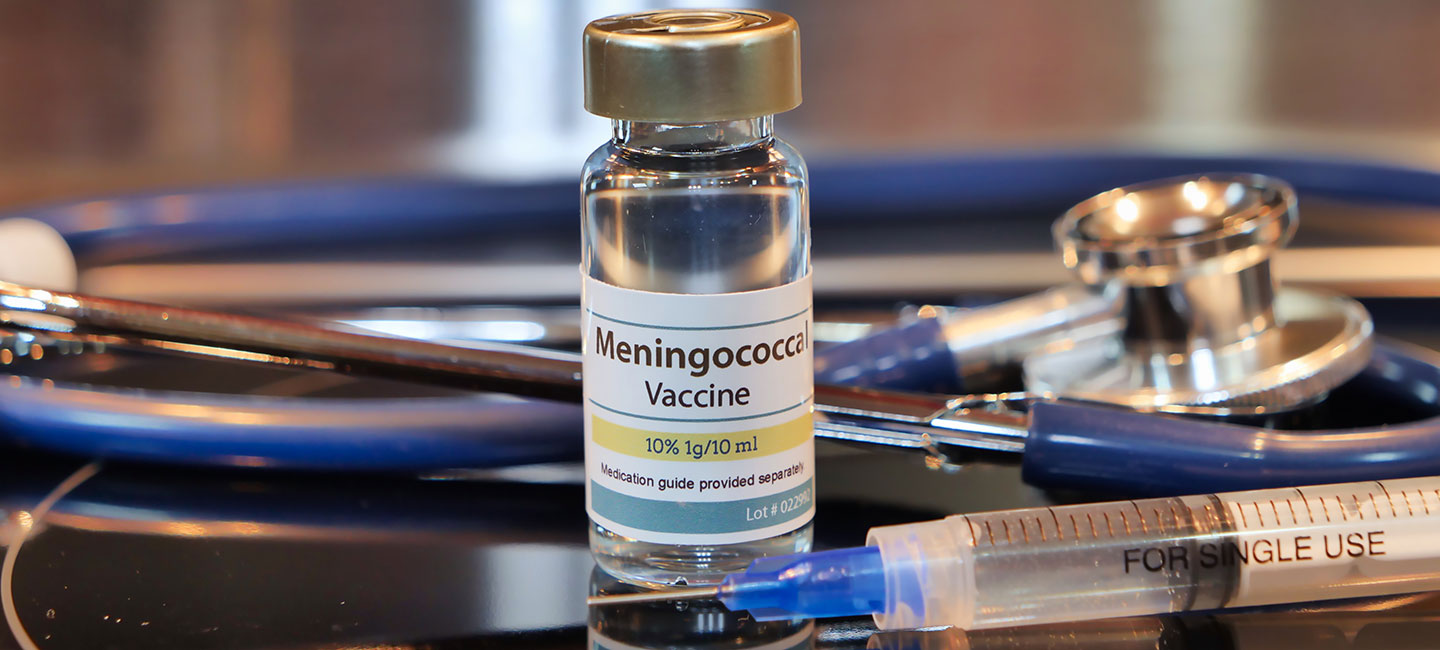Meningococcal Outbreak Identified in Florida
Florida is seeing a large uptick in meningococcal disease. According to the Florida Department of Health, the number of cases identified so far in 2022 has surpassed the five-year average of cases in the state.
Health officials are investigating each case and contacting people with potential or direct exposure to known cases to provide them with information and treatment options. The disease is rare but can be potentially devastating.

Dr. John Greene, Chair, Infectious Diseases Program
“Cancer patients who are immunocompromised should consider vaccination with a meningococcal conjugate (MenACWY) vaccine during the outbreak,” said Dr. John Greene, chair of the Infectious Diseases Program at Moffitt Cancer Center. MenACWY vaccines are also known by their brand names including Menactra®, Menveo® and MenQuadfi®.
Others who should consider vaccination include:
- College and university students
- Immunocompromised individuals, including cancer patients and transplant patients
- People living with HIV
- Men who have sex with men
- People in any groups listed above who received their MenACWY vaccine more than five years ago
Since 2005, MenACWY has been recommended as part of the routine vaccination regimen for all preteens and teens at 11 to 12 years old followed by a booster dose at 16. Some younger cancer patients may have received the vaccine prior to adulthood.
Moffitt does administer MenACWY if necessary to its patients. Vaccination is also available through community pharmacies and primary care physicians’ offices. Dosing includes:
- Two doses for stem cell transplantation recipients at least 6 months after stem cell transplantation
- Two doses for other immunocompromised patients previously not vaccinated with MenACWY
- A single dose for other at-risk patients previously not vaccinated
- A single booster dose for other at-risk patients who previously received MenACWY vaccination more than five years ago
Meningococcal disease is caused by bacteria called Neisseria meningitidis. These bacteria are not as contagious as germs that cause the common cold or flu, and they are passed to others through close contact over a period of time, such as kissing or sharing drinks.
Symptoms include:
- Fever
- Headache
- Stiff neck
- Nausea
- Vomiting
- Light sensitivity
- Confusion
- Rash
For more information on meningococcal disease, click here.



